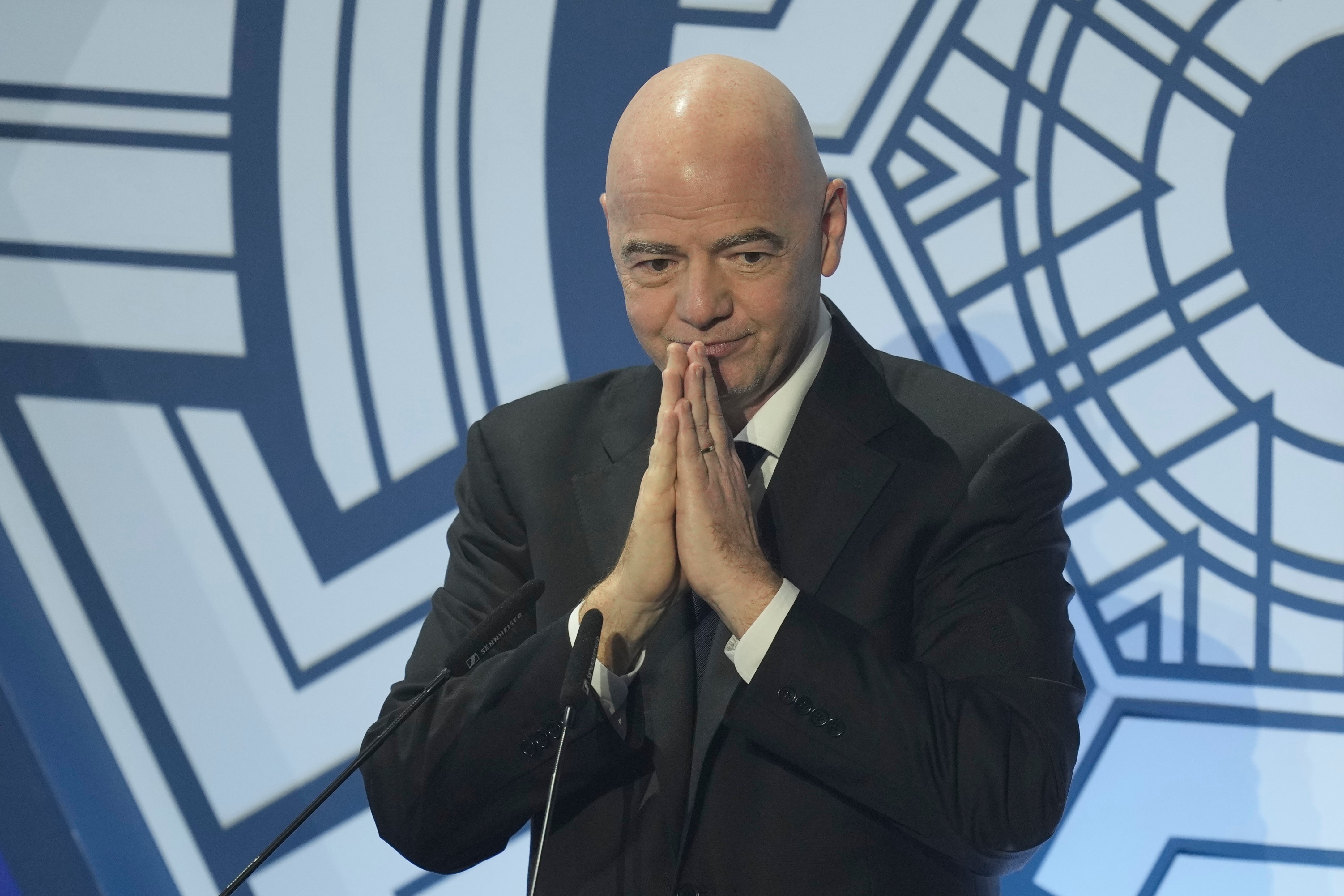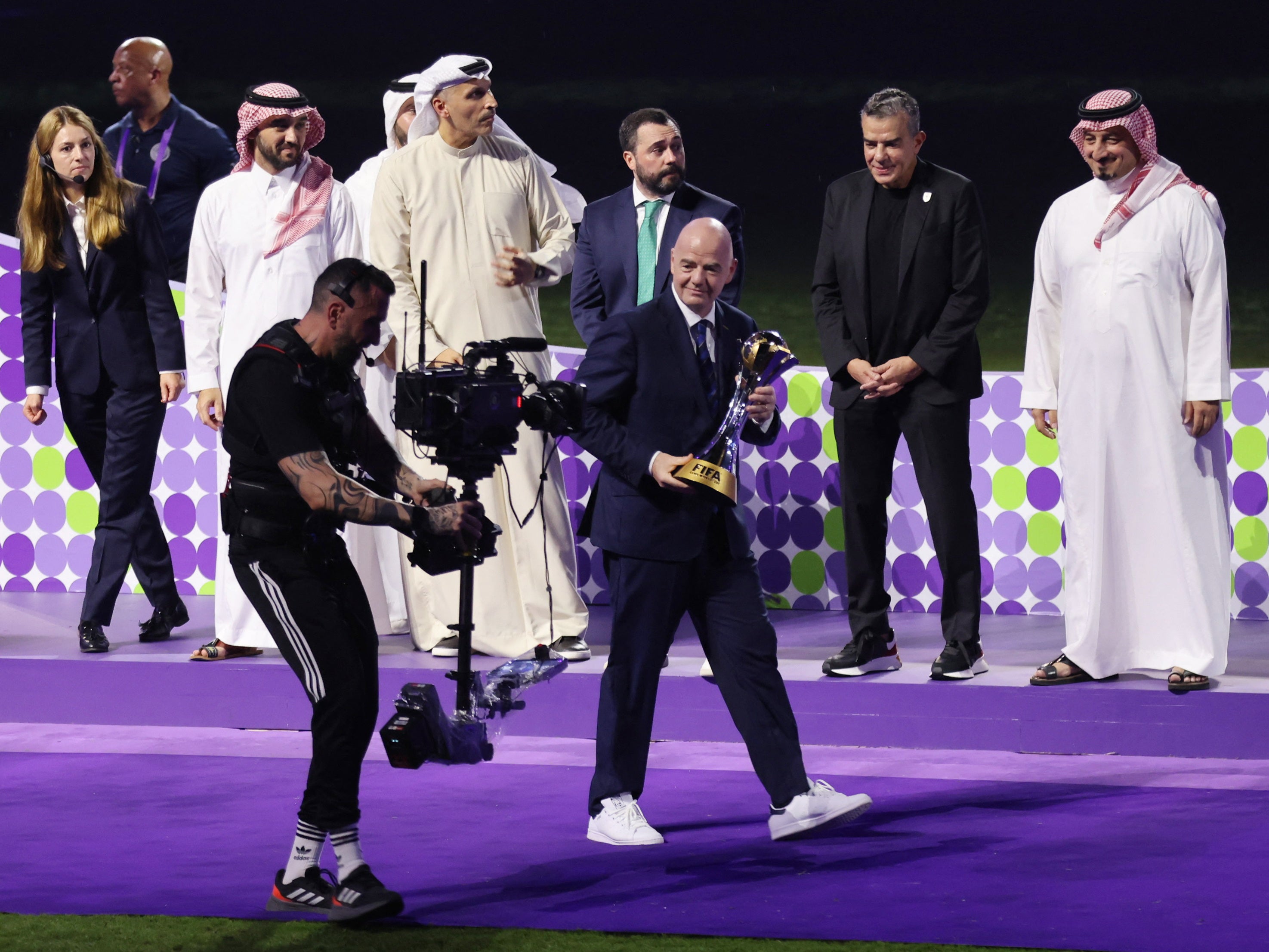Fifa’s flawed structure has contributed to “a wide range of social harms, not least very serious and systematic human rights abuses”, a major new report by activist group FairSquare has concluded. The human rights body calls for profound reform of the global regulator but states that this is almost impossible from within. It is argued that some aspects of governance have got worse since Gianni Infantino was elected president in 2016 after a series of corruption scandals.
The 140-page report, titled ‘Substitute: the case for the external reform of Fifa’, drew on more than 100 interviews, as well as field research, to assess the impact of World Cups going back to South Africa 2010. It concluded that the body was ultimately a negative force in its current guise due to consequences that are “contributing to harm and suffering”. This was primarily attributed to an infrastructure where power is centred in what is essentially an executive president position, which derives its support from a one-member-one-vote patronage system. The report criticises Fifa’s inability to self-regulate while pointing to the conflicts of interest that come with being a regulator as well as a competition organiser. FairSquare go on to state that this structure means the body is even failing in its core stated objective of developing football, especially with regards to the women’s game.
The conclusion arrives during a fraught period for Fifa, where its authority has been challenged by a series of legal actions, including that from players’ unions over the beleaguered new Club World Cup. Infantino’s regime has also faced severe criticism about its deepening relationship with the Kingdom of Saudi Arabia, with the state set to be awarded the 2034 World Cup on 11 December. That will come after an “en bloc” vote where member associations have to cast their choices for both 2030 and 2034 at the same time, potentially preventing protest votes.
FairSquare are a human rights group working to promote better governance to prevent sporting institutions from contributing to social problems. They state that a central issue is the Fifa Forward programme, which is the evolution of Sepp Blatter’s old GOAL programme. This is the system through which the body’s ample funds are redistributed among member associations, through a set figure every year. The problem specified is that this serves as a vote-winner for incumbent presidents in a “mutually dependent system of patronage”, where there is also “a lack of transparency”.
The report states: “Fifa does not appear to be exercising the requisite control over the money it redistributes; on the contrary, it is pumping increasing amounts of money into its member associations without any apparent regard for their specific development needs. It is hard to escape the conclusion that one of the primary functions of the [programme] is to buy the political support of member associations at the cost of the proper sustainable development of the game.”
Fifa are even criticised for how it has “weaponised” its prohibition of “political interference”, which essentially prevents state oversight.
Nick McGeehan, co-director of FairSquare and lead author, said: “Fifa is a commercial rights holder, a development organisation, a competition organiser, and a global regulator, all rolled into one big mess. Commercially, it’s a hugely successful organisation, but it has been grossly negligent in addressing the eye-watering list of human rights abuses linked to its operations, and from the perspective of the development of the game, most notably the development of the women’s game, it appears to be irredeemably dysfunctional.”
FairSquare describes the outcome of all this as “disastrous”.

“Fifa’s operations entail very serious risks to a wide range of human rights and the organisation is guilty of serious due diligence failures, most notably in the run up to the Qatar 2022 World Cup, where it repeatedly failed to take steps to mitigate the serious human rights risks to migrant workers involved in preparations for the tournament,” the report states. Its operations elsewhere have been linked to abuses including mass evictions, the destruction of livelihoods, police abuse, extrajudicial killings and other violations of the right to life, forced labour, and physical, sexual and psychological abuse.”
The report concludes that only “institutional separation” of funding from the rest of Fifa’s operations can “break the patronage system”, while calling for the publication of “information to verify that the funds are being spent on the purpose to which they have been allocated”. In an accompanying policy brief entitled ‘Laws for the Game’, Dr Jan Zglinski from the London School of Economics argues that the European Union's transnational powers can serve as one possible solution.

“Football is far too socially, politically and economically important to be governed this poorly. Only external regulation will provide the foundations for Fifa to deliver on football’s transformative potential and to prevent the organisation from causing more serious harm,” said McGeehan.
Fifa did not respond to FairSquare, amid widespread claims that the body has stopped answering NGOs.
The Independent has contacted Fifa for comment.
States of Play by Miguel Delaney publishes with Seven Dials on 7 November. The book can be pre-ordered here







